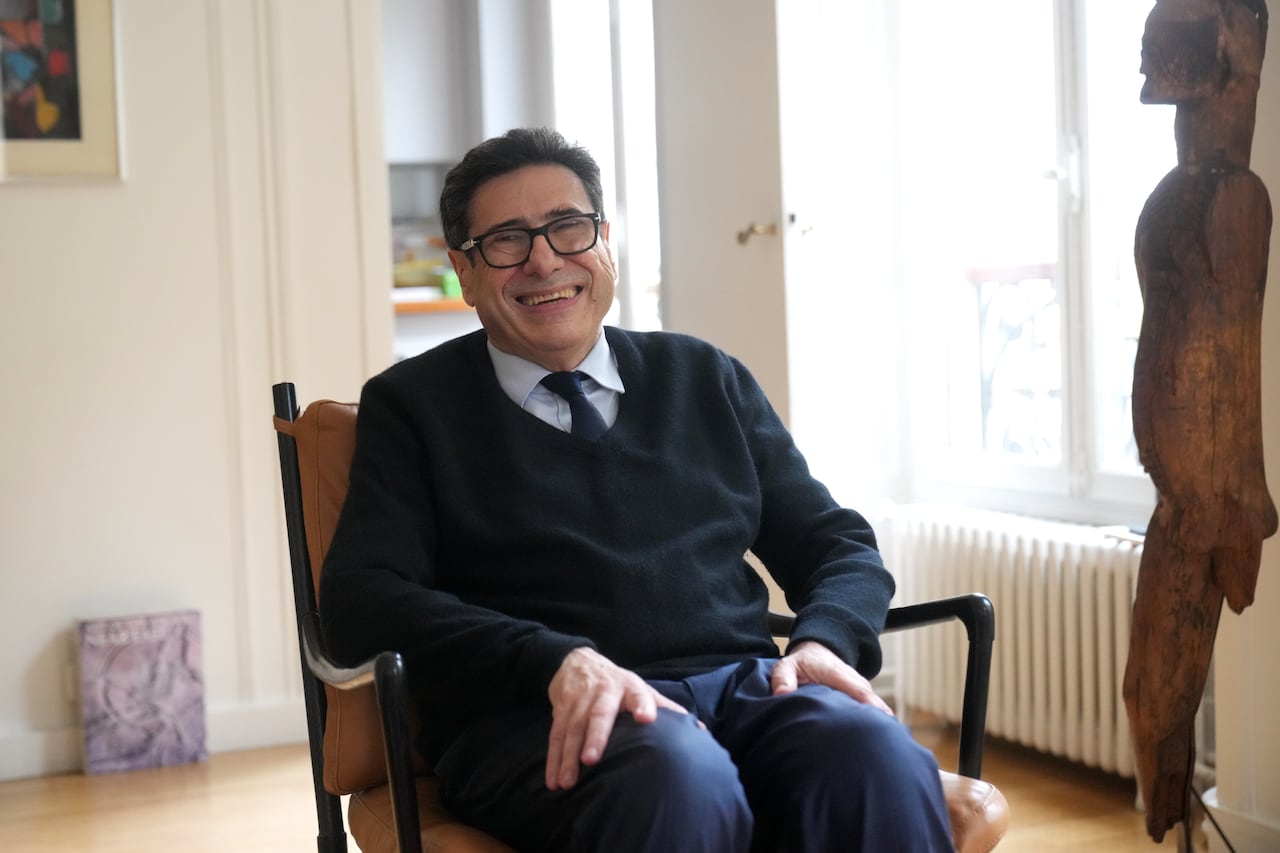Canadian economist Peter Howitt is among a group of three researchers who have won the Nobel Prize in economics, the Royal Swedish Academy of Sciences announced Monday.
Howitt, Joel Mokyr and Philippe Aghion received the award for their research into the impact of innovation on economic growth and how new technologies replace old ones—a key economic concept known as “creative destruction.”
The winners represent contrasting but complementary approaches to economics. Mokyr is an economic historian who studied long-term trends using historical sources, while Howitt and Aghion relied on mathematics to explain how creative destruction works.
Howitt, 79, received a bachelor's degree in economics from McGill University in Montreal and a master's degree from the University of Western Ontario in London, Ont. He is a professor of social science at Brown University in Providence, Rhode Island.
Aghion, 69, graduated from the College de France and the London School of Economics. Mokyr, a 79-year-old Dutchman, graduated from Northwestern University.
Arriving early Monday morning, Howitt said he was thrilled. “It’s just a lifelong dream,” he said.
Howitt said he learned about the award from a persistent Swedish reporter who dialed his wife's phone early that morning, before the committee could contact the economist. By the time Howitt received formal notice from the committee, he already knew about it.
Howitt said his day looked completely different after the call.
“I'm going to spend the day answering phones,” he said. “We didn’t have any champagne in the fridge waiting for this.”
Howitt said he was looking forward to celebrating the occasion with fellow winner Aghion. The duo worked together for about 30 years, he said.
“I’m really looking forward to meeting him and celebrating with him as a family,” he said. “We have kids all over North America and we’re looking forward to going to Sweden together.”
“More chances of being elected Pope”
Mokyr was still trying to drink his morning coffee when he received a call from an Associated Press reporter. He said he was shocked to receive the prize.
“People always say that, but in this case I'm telling the truth – I had no idea something like this could happen,” he said.
He said his students asked him about the possibility of winning the Nobel Prize. “I told them I had a better chance of being elected pope than winning the Nobel Prize in economics—and by the way, I’m Jewish.”
Mokyr, who turns 80 next summer, said he has no plans to retire. “This is the job I've dreamed of my whole life,” he said.
Aghion also said he was overwhelmed by the honor.
“I can't find the words to express how I feel,” he said by phone at a news conference in Stockholm. He said he would invest his prize money in his research laboratory.

Asked about the current trade wars and protectionism in the world, Aghion replied: “I do not welcome the protectionist approach in the United States. This is bad for… global growth and innovation.”
Howitt has also been critical of President Donald Trump's trade policies.
“It's pretty clear that this will hamper innovation by reducing what we call economies of scale,” he said. “Starting a tariff war simply reduces the size of the market for everyone.”
He said trying to bring manufacturing jobs back to the U.S. may make some political sense, but it is not good economic policy.
“We're good at designing running shoes, but it's better for us to leave them to others,” he said.
“Creative Destruction”
The winners were credited with best explaining and quantifying “creative destruction,” a key concept in economics that refers to the process in which useful new innovations replace—and thus destroy—old technologies and businesses.
The concept is usually associated with economist Joseph Schumpeter, who outlined it in his 1942 book. Capitalism, socialism and democracy.
The Nobel committee said Mokyr “demonstrated that if innovations are to succeed each other in a self-generating process, we not only need to know that something works, but we also need to have scientific explanations for why.”
Aghion and Howitt have studied the mechanisms of sustainable growth, including a 1992 paper in which they built a mathematical model of creative destruction.
Aghion helped shape French President Emmanuel Macron's economic agenda during his 2017 election campaign. Most recently, Aghion co-chaired the country's Artificial Intelligence Commission, which submitted a report to Macron in 2024 outlining 25 recommendations to position France as a leading force in artificial intelligence.
“The work of the laureates shows that economic growth cannot be taken for granted. We must support the mechanisms underlying creative destruction to avoid slipping back into stagnation,” said John Hassler, chairman of the Economic Sciences Prize committee.
Half of the SEK 11 million ($1.6 million CAD) prize will go to Mokyr, with the other half shared by Aghion and Howitt. Winners also receive an 18-karat gold medal and a diploma.
The Economics Prize is officially known as the Bank of Sweden Prize in Economic Sciences in Memory of Alfred Nobel. The central bank established it in 1968 as a monument to Nobel, the 19th-century Swedish businessman and chemist who invented dynamite and created five Nobel Prizes.
Since then it has been awarded 57 times to a total of 99 laureates. Only three of the winners were women.
Nobel purists point out that the economics prize is not technically a Nobel Prize, but it is always awarded along with the others on December 10, the anniversary of Nobel's death in 1896.
The Nobel Prizes in Medicine, Physics, Chemistry, Literature and Peace were announced last week.








